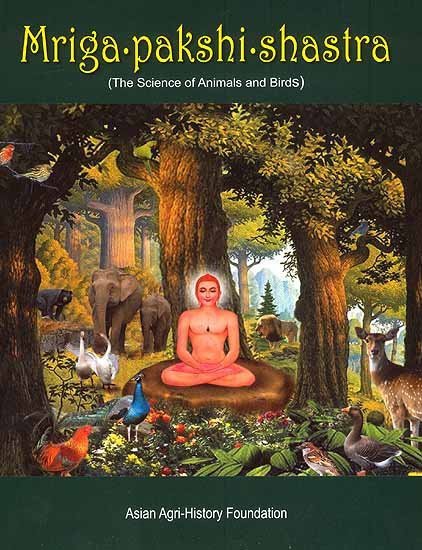Animal Kingdom (Tiryak) in Epics
by Saranya P.S | 2019 | 51,616 words | ISBN-10: 8190396315 | ISBN-13: 9788190396318
An English study the Animal Kingdom (Tiryak) in Epics.—The present thesis is based entirely on Ramayana and Mahabharata although an attempt is made to analytically compare the Animal kingdom with Mriga-pakshi-shastra—‘The ancient Indian science of of Animals and Birds’....
Chapter 6.3 - The hawk-dove debate (Shyena Kapota Samvada)
The Hawk-Dove debate is seen in the Danadharma Parva which is a subsection of Anushasana Parva. Yudhishthira wanted to listen to the Dharma Principles from Bhishma. He then asks Bhishma about the consequence of saving 4 kinds of creatures that come to him seeking shelter. In response Bhishma tells him the story of Shibi.[1]
In the Mahabharata related to the story of the hawk and dove, the stories of Shibi and his father Ushinara[2] have been told.[3]
To test the generosity of Ushinara, taking the support to Agnideva, Indra disguised himself as a hawk and a fire dove. As if the hawk was attacking the dove, both the birds flew into the presence of
King Ushinara and fell down on the floor. The king promised to save the dove. But the hawk argued that it was not right on the part of the kind to deny it its food. The king offered other kinds of meat to the hawk but the hawk was not willing to accept them. Then the kind said he would cut an amount of flesh from his body equal to the weight of the dove and give it to the hawk. The king started cutting his flesh and put it on the balance to make it equal with the amount of the dove's weight. He went on adding flesh, but his flesh could never equal the dove's weight. In the end the king himself sat on one side of the balance. Then the hawk and the dove returned to their original shape and after blessing the king went back into the world of deities.
Through this story, Bhishma is telling Yudhishthira that one must do what the king did to those who come seeking help. A person who protests his dependents who are pious and loyal to him and kind to all the creatures will be happy in this world and the other world. For the upright king who is bent upon doing good, there is nothing he can't get with the help of dharma. Through one's good deeds one will get everlasting fame in all the three worlds.[4]
Footnotes and references:
[1]:
V. Mahabharata . Anushasana 32, p. 585
[2]:
V. Mahabharata Anushasana 32, p. 585-588
[3]:
Mahabharata , Aranyaparvum, 131
[4]:
V. Mahabharata Anushasanaparvum 32. P. 588
